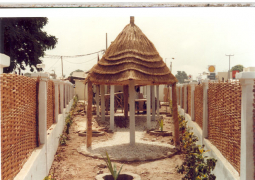Rape is said to be the crime of forcefully having sex with someone against his or her wishes. This inhumane activity is usually committed against the weaker sex - females- or better stills the girl child.
The
Today the She - She -She delves into rape as a way of life for women.
Women and girls in
Much of the violence perpetrated in the
As a result, victims are most vulnerable when they leave the camps to seek firewood. For example, Hawa Iskak Mahmood was on her way to work on a farm when she was attacked, beaten and raped.
Rape in Sudanese society is a cultural taboo, often resulting in ostracism from neighbours and even relatives. It is believed that large numbers of women do not report rape cases, to avoid this social stigma. After being captured and repeatedly raped one woman said 'my husband couldn't forgive me for this, he disowned me'.
Sexual purity is of such importance to some African and Arabian societies that female genital mutilation is a common practice to supposedly preserve cleanliness.
According to Professor Donna M. Hughes of the
In some countries, the law does not recognise rape as a crime. Most people accused of rape are only charged with assault, a lesser charge that can lead to a one - year jail sentence. In such countries, under the law, rape can only be said to have occurred and be admitted in court if there are four witnesses.
One in six women and one in 33 men will be sexually assaulted in her or his lifetime. Sexual assault is one of the most underreported crimes with as much as 60% still being left unreported. Males are the least likely to report a sexual assault though they make up about 10% of all victims. What happen to rapists when they are caught and prosecuted? 60% of rapes or sexual assaults are not reported to the police. Those rapists of course, never spend a day in jail according to a statistical average of the past five years. Factoring in unreported rapes, only about 6% of rapists ever serve a day in jail.
Facts
1.If a rape is reported, there is a 50.8% chance of arrest.
2.If an arrest is made, there is an 80% chance of prosecution.
3.If there is a prosecution, there is a 58% chance of conviction.
4. If there is a felony conviction, there is a 69% chance the convict will spend time in jail.
5. So even in the 39% of attacks that are reported to the police, there is only a 16.3% of chance the rapist will end up in prison.
6.Factoring in unreported cases, about 6% of the rapists will ever spend a day in jail.
7.15 of the 16 arrested rapists walk free!
This does not mean the judiciary and child friendly organisations are not doing their best in The Gambia to wipe out rape.
This could also be done by going on a nationwide campaign to sensitise women and children on rape and how to avoid it. This could help them know the danger signs of when an insatiable man is around and his immediate intentions. She - She - She, as another platform where women are given the chance to know their rights is appealing to the Government as the voice of the women and children to embark on such an activity. It is also appealing to barristers who stand as defence counsels for accused rapists not to go in for the interests of those rapists, but for the interest of the victim be it a girl child or a woman. This would help to instil fear in those who want to commit rape.



